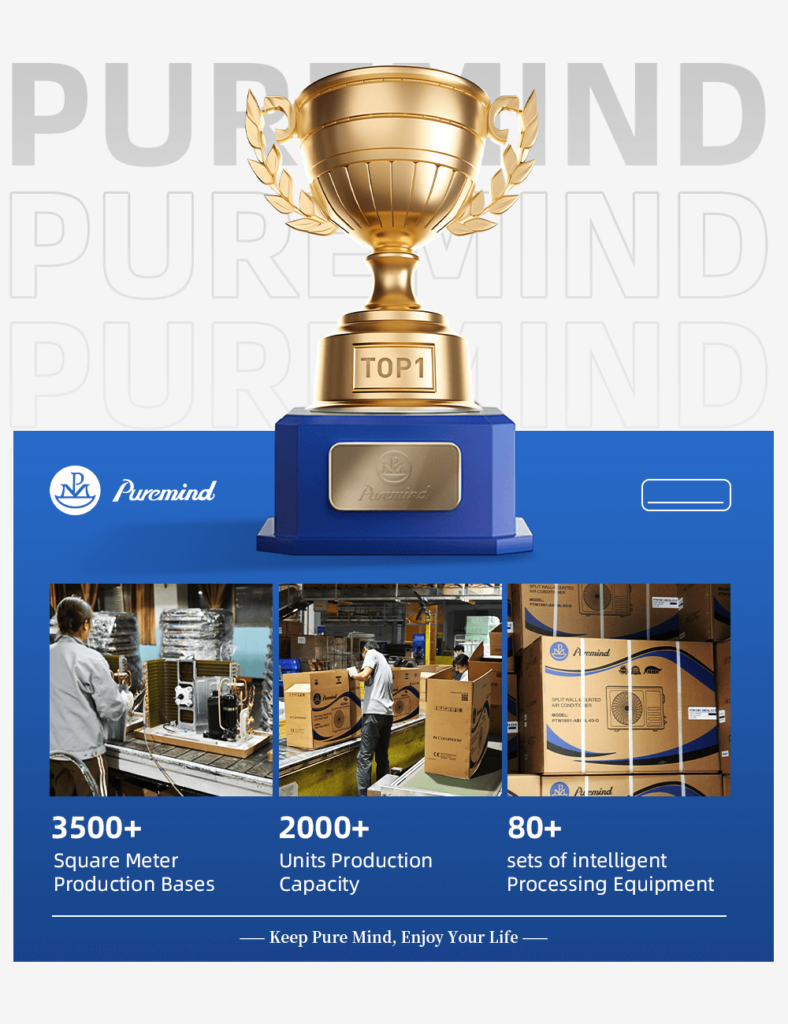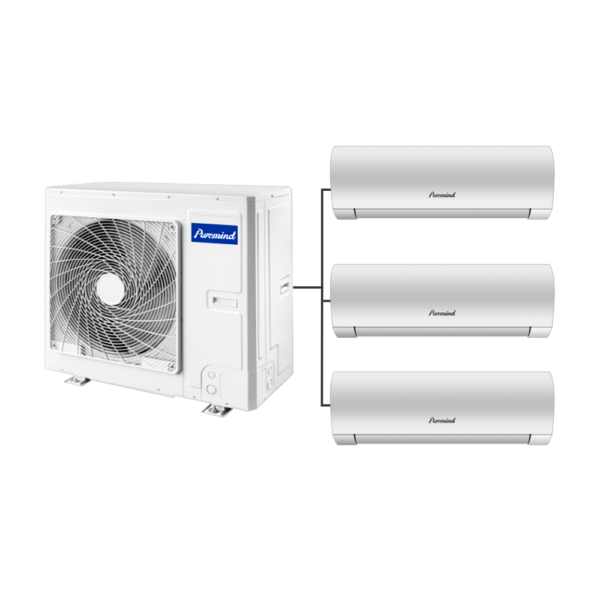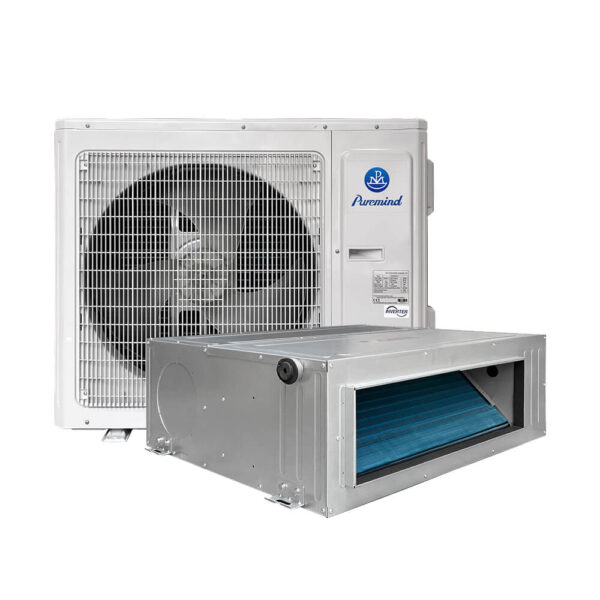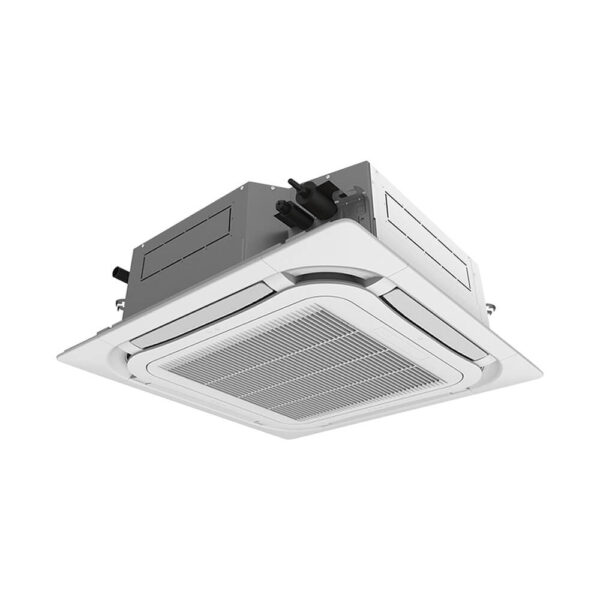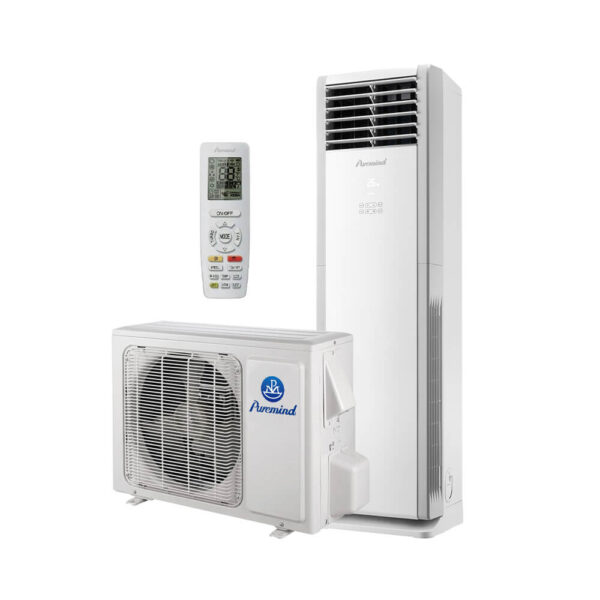Air conditioners have become essential for modern living, but the technology behind them is evolving quickly. One of the biggest innovations in recent years is the inverter air conditioner. If you’ve been wondering how it differs from a conventional AC, why it matters, and whether it’s worth the higher price tag, this guide will help you understand everything you need to know.
Key Takeaways
- An inverter air conditioner uses variable speed technology to regulate the compressor, saving significant energy.
- Compared to non-inverter split ACs, it offers more stable cooling, quieter performance, and longer equipment life.
- The upfront price is higher, but the savings on electricity bills make it cost-effective over time.
- Ideal for people in hot climates, families with long daily AC use, and anyone focused on lowering their carbon footprint.
- Choosing the right inverter AC requires looking at room size, efficiency ratings, brand reliability, and after-sales support.
What Is an Inverter Air Conditioner?
An inverter air conditioner is a type of AC that automatically adjusts the compressor motor speed based on the cooling demand. Unlike traditional models that switch the compressor on and off at full power, inverter ACs run continuously at variable speeds to maintain a steady temperature.
- Inverter AC: Smart, variable-speed, energy-efficient.
- Non-Inverter AC: Fixed-speed, higher power consumption, fluctuating room temperature.
👉 Browse our Split Inverter AC models for efficient cooling solutions.
Why It Matters
Cooling accounts for a significant portion of household electricity bills worldwide. In hot climates, air conditioners can make up more than 30% of monthly energy usage. With global energy prices increasing and climate change concerns growing, inverter ACs are designed to:
- Reduce energy use by up to 50% compared to non-inverter models.
- Provide consistent comfort without sudden hot or cold swings.
- Lower noise levels since compressors don’t need to repeatedly start and stop.
- Extend system lifespan, as the compressor avoids frequent stress.
👉 Looking for eco-friendly options? Explore our Solar Air Conditioner series.
Who Benefits from Inverter ACs
- Homeowners in warm regions who run AC daily during summer months.
- Businesses and offices that need stable cooling throughout the day.
- Families with children or elderly who are sensitive to temperature changes.
- Eco-conscious buyers aiming to reduce energy bills and emissions.
Pros and Cons of Inverter Air Conditioners
| Feature | Inverter AC | Non-Inverter AC |
|---|---|---|
| Energy Efficiency | 30–50% less electricity usage | High consumption |
| Temperature Control | Smooth and stable | Frequent fluctuations |
| Noise Level | Quiet | Louder, due to compressor cycling |
| Initial Cost | Higher | Lower |
| Maintenance | Slightly more complex | Standard |
| Durability | Longer compressor life | Shorter due to stress |
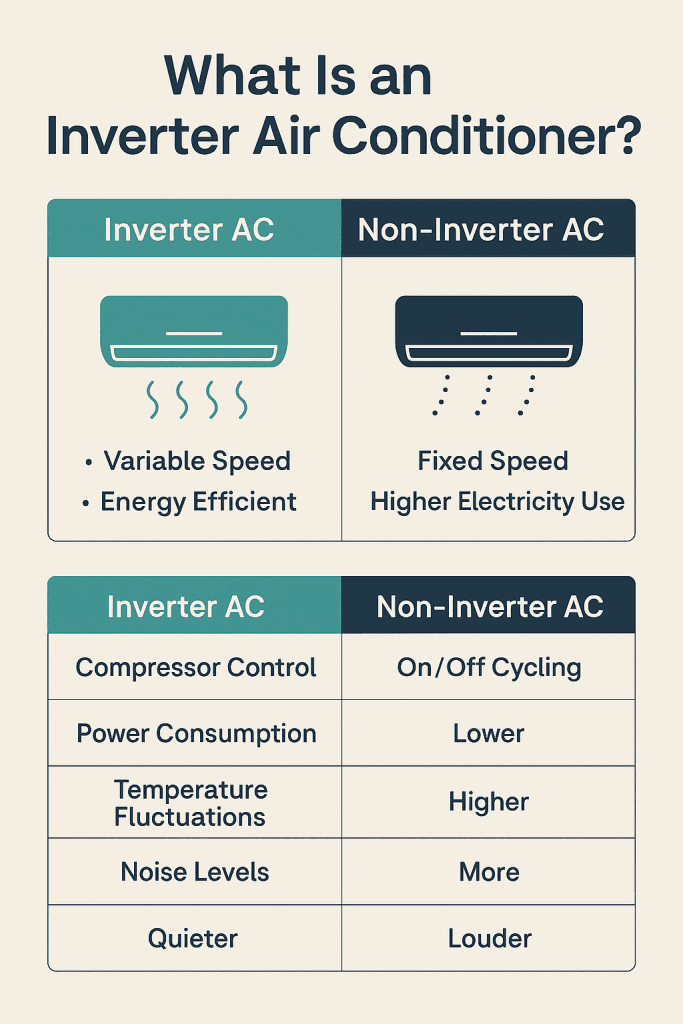
How an Inverter AC Works: Step by Step
- The user sets the desired room temperature.
- The compressor starts at high speed to cool the room quickly.
- Once the target temperature is reached, the compressor slows down but does not turn off.
- It continues running at variable speeds, making small adjustments to maintain comfort.
👉 For a breakdown of energy-saving options, see our Energy-Efficient ACs.
Impacts on Customers, Industry, and Environment
- Customers: Lower utility bills, quieter living spaces, and better comfort.
- HVAC Industry: Inverter technology is now the standard in most premium product lines, reflecting a shift toward sustainability.
- Environment: Reduced electricity demand means fewer greenhouse gas emissions from power plants.
What to Look for in an Inverter AC
When shopping for an inverter air conditioner, consider:
- Energy Efficiency Ratings (EER/SEER): Higher ratings mean better performance and savings.
- Room Size Match: Choosing the right capacity prevents overworking the system.
- Noise Levels: Especially important for bedrooms or offices.
- Brand Reputation and Warranty: Look for strong after-sales service, especially for compressor coverage.
- Smart Features: WiFi control, eco modes, and self-cleaning filters can enhance convenience.
- Compatibility with Solar Power: Some models pair well with solar AC solutions for maximum savings.
Conclusion
An inverter air conditioner is more than just a luxury—it’s a long-term investment in comfort, savings, and environmental responsibility. While the upfront price is higher than a standard AC, the energy savings, quieter performance, and durability make it worthwhile for most households and businesses.
👉 If you live in a hot climate, use your AC frequently, or care about reducing your energy costs, a Split Inverter AC is likely the best choice for you.
Frequently Asked Questions
1. What is the difference between inverter and non-inverter AC?
Inverter ACs adjust compressor speed for efficiency, while non-inverter ACs switch on and off at full power.
2. Does inverter AC save electricity?
Yes. It can reduce energy use by up to 50% compared to traditional ACs.
3. Is inverter AC worth the higher cost?
For frequent users, the savings on energy bills usually recover the extra cost within 2–4 years.
4. Can inverter AC work with solar panels?
Yes, many models are compatible with solar-powered air conditioners.
5. Do inverter ACs require special maintenance?
Maintenance is similar to traditional ACs, though repairs may require skilled technicians.
6. Is inverter AC good for small rooms?
Yes, but it’s important to choose the correct capacity—typically 1 ton for small bedrooms.
